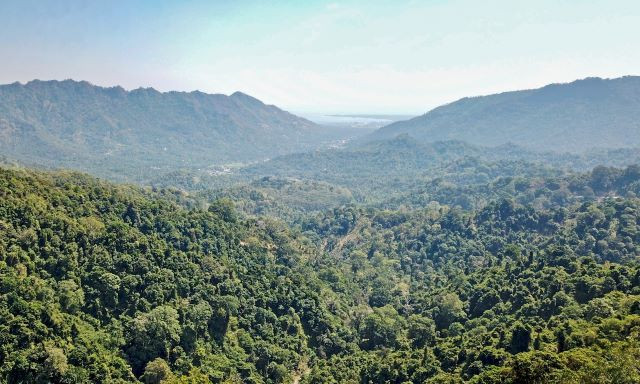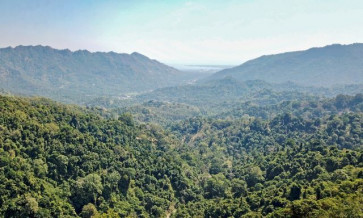Popular Reads
Top Results
Can't find what you're looking for?
View all search resultsPopular Reads
Top Results
Can't find what you're looking for?
View all search resultsDemystifying the OJK’s carbon trading regulatory framework
The OJK has issued a regulation on carbon trading through a carbon exchange, and while much work still needs to be done in terms of building the system and infrastructure, it gives hope that Indonesia will soon have a carbon exchange toward generating revenue and achieving the government’s 2030 emissions reduction goal.
Change text size
Gift Premium Articles
to Anyone
 The West Rinjani nature park in Pemenang district in North Lombok, West Nusa Tenggara is seen from a hill on Sept. 4, 2023. Thanks to its huge forest areas of about 125 million hectares, Indonesia has tremendous carbon emission absorption potential amounting to US$565.9 billion
(Antara/Ahmad Subaidi)
The West Rinjani nature park in Pemenang district in North Lombok, West Nusa Tenggara is seen from a hill on Sept. 4, 2023. Thanks to its huge forest areas of about 125 million hectares, Indonesia has tremendous carbon emission absorption potential amounting to US$565.9 billion
(Antara/Ahmad Subaidi)
A
s part of the effort to establish a carbon trading system in Indonesia, the Financial Services Authority (OJK) has issued a regulation on carbon trading through a carbon exchange. This regulation should be considered as a breath of fresh air, as it provides the framework for setting up Indonesia’s carbon exchange.
We have several observations on the OJK regulation.
First, boosting carbon trading via a carbon exchange requires government supervision of emissions limit compliance among business entities. Even though there are some exceptions, the tradable carbon units on the exchange will only consist of the Technical Approval for the Upper Greenhouse House Gas Emissions Limit and the Emissions Reduction Certificate.
The technical approval essentially contains the upper limit of greenhouse house gases (GHG) that business entities are allowed to emit over a certain period, while the reduction certificate serves as proof of verified GHG emissions reduction.
The technical approval, as a tradable good, suggests that the government has incorporated a cap-and-trade scheme in carbon trading. The government sets the cap for GHG emissions, and to stay under this cap, the relevant business entities may trade carbon units on the exchange.
Indonesia has targeted achieving GHG emissions reduction of between 29 and 41 percent by 2030, but for this to work, each business entity must comply with its own cap as stipulated in the relevant technical approval.
Each technical approval is determined by the ministry of the relevant sector. For instance, the technical approval in the peat and mangrove management sector would be determined by the Environment and Forestry Ministry. Thus, the ministry should diligently supervise compliance with the technical approval for this sector. Otherwise, business entities would arguably have no pressure to trade on the carbon exchange.


















